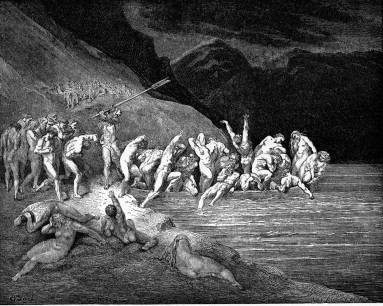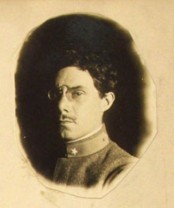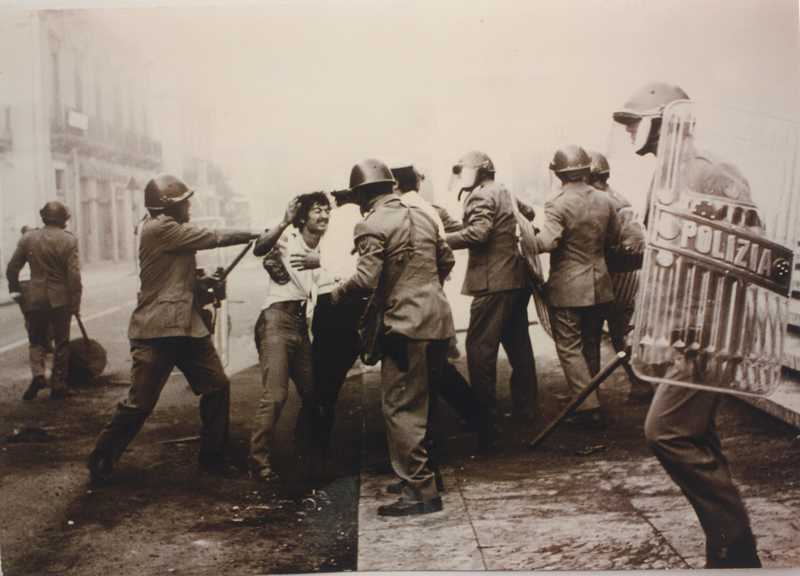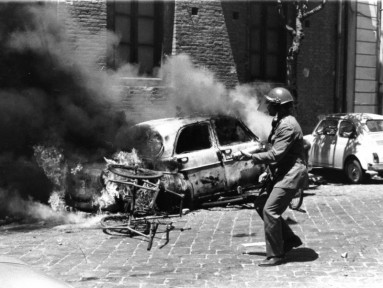A new text pulled from my ongoing project to translate, and hence make better sense of, the unique sequence of social war in the Italian Long '70s, especially in terms of an anti-work position. I've become increasingly interested in what was called the critica radicale strand: a brief moment of dissident and illegalist councilism centered around Genova, Milan, and Turin, in a country that never had a substantial council communist tradition. The path that led to this is a particularly circuitous one that I'll detail at more length shortly
 flectere si nequeo superos, Acheronta movebo
flectere si nequeo superos, Acheronta movebo
This text that follows comes from the group Organizzazione Consiliare (OC) and was published in Acheronte, one of the better titled communist publications I can recall. "Acheronte" is the Italian name for ??????, or Acheron, one of the five rivers that flow into Hell. Specifically, the river of pain. In the Inferno, the Acheron delimits the border of Hell; in Virgil's Aeneid and Greek mythology generally, it's over its waters that Charon ferries the dead, provided a coin was placed beneath their tongue to purchase passage. The Acheron is, in other words, a space that separates two realms of order but whose stream runs orthogonal to possible transition from one to the other. Read in terms of the political project of OC: the movement of communism is a labored, but anti-labor, passage that must contradict both the law of value (no cash, no ride) and the way the aquatic wind blows. It has to make its way across a flow of history that does not push straight against it, doesn't at least provide correct direction in negative relief. Instead, cutting across a slipstream, the current threatens to carry that fought passage off-course, down stream, spinning round and round in a neither-nor tizzy of reform, elections, petty terrorism, neither breathing nor drowned...
In the Aeneid, Juno - having decided the refusal of gods to accede to your will should be no barrier whatsoever - says,
flectere si nequeo superos, Acheronta movebo
Literally:
If I cannot bend the will of those above, I will move the Acheron...
More adequate, perhaps:
If I cannot change Heaven, then I will raise all Hell...
It's no longer an attempt to reform heaven orto storm it in a fantasy of coup. Unable to reason with the powers that be, rebels don't bother trying to achieve the bending of their superiors' will by waging war beyond Heaven's Gate. They head south instead. Not to the underworld as such, though. To the point of passage between the living and the dead: the junction point of circulation, where production meets accumulation, the thin line dividing living labor and dead labor and insisting upon their difference, a constructed line policed by the rule of money.
And so one gets busy down there: taking over the river, dredging it, making boats into dams and dams into boats. Convincing Charon to change sides like the soldiers at a barricade, or slitting his throat with a sharpened coin smuggled in under the tongue...
(Dear present commies: we're really falling down on this whole perfect names thing, as much as we're falling down on the whole providing housing and raucous mobs to mortgage defaulters who want to resist eviction.)
Published in fall of 1970, the relevant event this text responds to is the very urban revolt of Reggio Calabria, lasting from July 197o to February 1971. The most striking element of that revolt is the seeming short-circuit between its cause and the severity of the effect. The cause was a protest called by the city's mayor himself - i.e. a civic protest managed by representatives - over the naming of the regional capital city not Reggio Calabria but much smaller Catanzaro. He called for five days of protest; what he got was 8 months of near insurrection, the wrecking of train lines, bombing of a train (killing 6 people), a port blockade, highway blockade, much burning of cars. (I think it not accidental the way that the majority of the property damage was inflicted on infrastructure of circulation, although this issue is lacking from the relevant texts written about it.) The whole thing didn't come to an end until the two-pronged assault of armored cars and the promise of a new factory in town to help answer unemployment. Most significant, perhaps, is the way that the insurrection cannot be easily identified with the left or a worker's movement. It was a clusterfuck, one into which both the local organized crime mob (the 'Ndrangheta) and MSI neofascists inserted themselves and tried to take control, visibly or secretly.
What's of interest, then, in the text is neither their rather flat account of how "repressive society," that endlessly indistinct notion, uses the ideology of work nor the equally vague discussion of "ideological goods." Even on that terrain, this version is less interesting than others in the critica radicale current or elsewhere in the heterogeneous Italian far left, from Cesarano, Collu, and Camatte's versions of the two-fold character of the community of capital (autonomization of capital and the built landscape) to Tafuri's discussion of the materialization of ideology after the collapse of utopia. Instead, the issue at stake
"Theses for the liberation of labor"
1. The ideology of work is the ploy that repressive society uses to slow the generalized transition, one already possible today, toward a society without classes and free from the slavery of work.
2. The world market in its last phrase: the exchange of material products survives only as an economic form on the way out; the more evolved form, now realized on a planetary scale, is the exchange of ideological goods.
3. Ideologies, foundation of the actual wealth of nations, are goods in their modern version: their value is given by the time of consent they succeed in guaranteeing. They are the form in which capital manifests itself and through which it exercises its power.
4. Ideology exchanged between states - communist ones not excluded - is then distributed as retail to the proletariat to be consumed. It is set up in the form of natural laws: work as a continual curse and production as unavoidable necessity.
5. The logic of work, however, bears within itself the conditions for its total overcoming. Today, capital could reduce working hours by half: the so-called revolutionary forces include amongst their objectives the progressive reduction of working hours because those forces represent consensual dissent.
6. Production, set out as material commodities, and consumption, set out as ideological commodities, identify with each other, and the salaried fill their 24 hours alternating between one and the other. The working day now lasts 24 hours: productive life and quotidian life coincide in their misery.
7. There's no one form of waged labor
8. In the proletarian revolt of Reggio Calabria, like in Caserta and Battipaglia before, this happened. The proletariat constituted itself as a mob to launch its conscious challenge at the unconsciousness of the constituted order. The proletariat's solitude and the obscene and grinning face of its insurrections leave its oppressors and false protectors dismayed.
9. The Neapolitian friends of Agostino
 Agostino Lanzillo, syndicalist who became a fascist; the reference is therefore toward the presence of MSI neofascists in the melee
Agostino Lanzillo, syndicalist who became a fascist; the reference is therefore toward the presence of MSI neofascists in the melee10. Today in Reggio, the motivations behind the revolt are defined as "futile." In fact, the the proletariat doesn't have particular motivations for rebelling because it has them all; it doesn't have particular demands to make to power because its objective is the destruction of every power that isn't the one exercised by proletarian councils.
11. The Proletarian Councils ask for nothing less than the destruction of this society, the abolition of work, the violent elimination of every separated institution (schools, factories, prisons, churches, parties, etc) because there will come to exist the deciding power of each person in the unified and absolute power of the Councils.
12. The Proletarian Councils will be nothing other than the beginning of the construction, on the part of all, of a free and happy life, today relegated to desires and dreams born of the unhappiness of actual survival.
13. Conscious proletarians, may the curse of labor be cursed, may the ineluctability of production become its sorrow.
---
Note on "there's no one form of waged labor."
This is a slippery and somewhat confused moment in the text requiring explanation. The basic point is that social domination is not determined in full by waged labor as the production of abstract time and quantification of the world as exchangeable; in fact, after the Keynesian recognition of downward wage rigidity, the wage becomes an independent variable. So there's no one form to waged labor insofar as there is not an "organically determined" adequation between value and wage that remains historically constant. And in different periods, one can see varying important placed on working-class consumption, debt, etc. On these grounds, they are gesturing toward a horizon where if capital tends already toward the outmoding of living labor, one could take the cue and finish for it the task it can neither stop approaching nor complete.
However, there's a limit to OC's thinking here when this is read back against the discussion of "repressive society" (and the misguided idea that social relations of capital are "used" by states and ruling classes). Because it's one thing to recognize the historical outmoding of the adequacy of a form (such as the bond of labor time and the wage) and quite another to claim that this outmoding makes it . A more serious reading of the analysis of the post-Keynesian moment - an analysis that resonates with OC but isn't seriously considered by them - or of the SI's take on class struggle would make clear that it is precisely the historical negation of a form that allows it to persist all the more strongly.
So it is that there's a disjunction in the leap made here in the link between production and consumption. It's right to grasp that consumption forms part of the total circuit of the reproduction of capital and that in certain periods, the extension of consumer purchasing power (whether through Fordist wages or household credit) can ameliorate slowdowns in the profitability of certain productive sectors.
But that surely doesn't make the undoing of waged labor itself any easier. Thought must arm itself in the streets, indeed, but not because capital would like to do away with waged labor. Rather, because it cannot, even as the generation of misery and shifts in the organic composition in commodities means that it must or face streets chock full of thought, exhausted, workless, and armed to the teeth.

